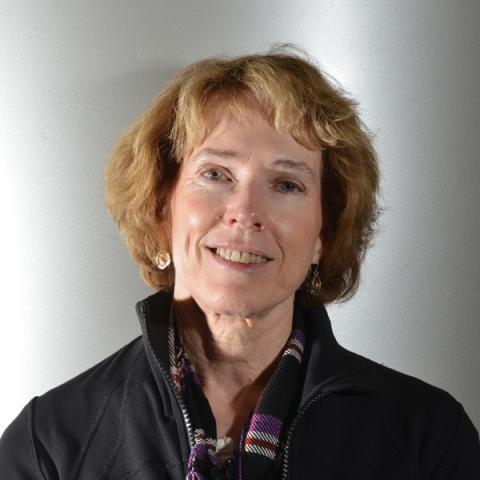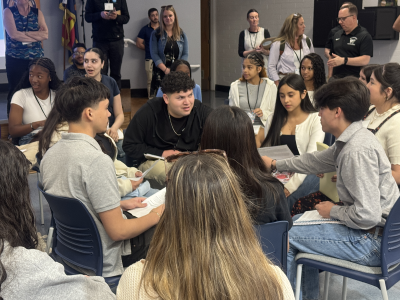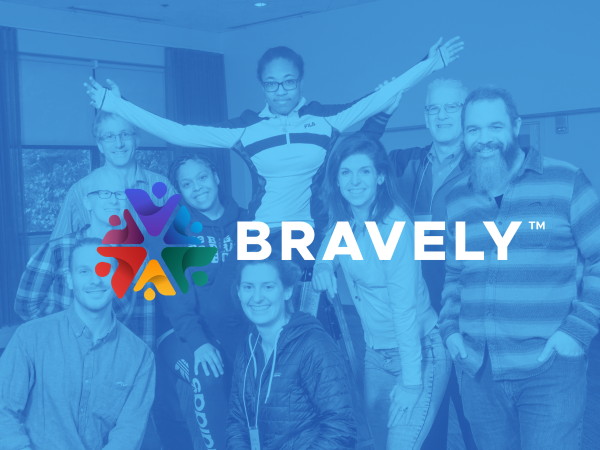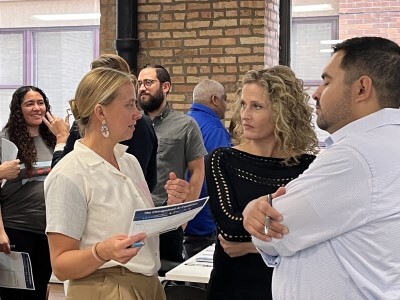Professional Learning
What Does Faculty Mean in a Breakthrough School?
Topics
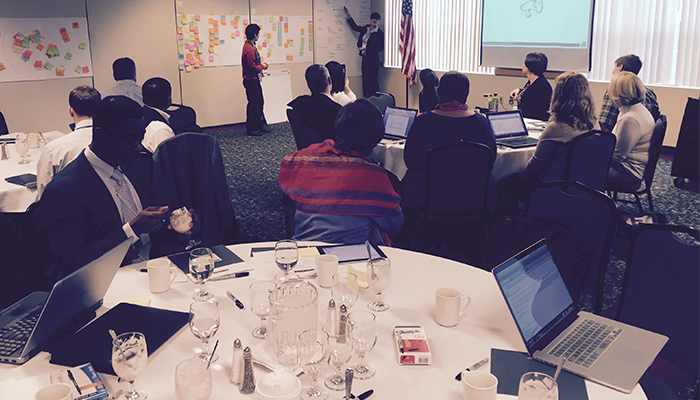
Educators are the lead learners in schools. If they are to enable powerful, authentic, deep learning among their students, they need to live that kind of learning and professional culture themselves. When everyone is part of that experiential through-line, that’s when next generation learning thrives.
NGLC brings breakthrough builders to College for America to think through what “faculty” means in a breakthrough model for student success.
The sun shone, and the heavy snows were finally melting last week as NGLC headed to the campus of Southern New Hampshire University (SNHU) in Manchester, New Hampshire.
SNHU is the creator and institutional home of the groundbreaking breakthrough model known as “College for America.” It’s been attracting national attention ever since fall 2012, when SNHU became the first institution approved by the US Department of Education to offer federal financial aid for a direct assessment competency-based program, in which the pathway to a degree is separate from the time spent progressing through it. Implementing a model like this demands many other changes, from the structuring of professional work at the institution to the way technology supports students and the program.
The 30 in attendance represented 18 colleges and universities that have been engaged in dramatically transformed approaches to student success—some as implementers of breakthrough models, others as participants in the Breakthrough Models Incubator or the Breakthrough Models Academy. We joined nearly 20 leaders and staff of College for America and SNHU itself for the first-ever consultancy on the postsecondary side of NGLC’s work. The concept of consultancy is one we’ve adopted from our colleagues developing new models, in the form of new schools, in the K-12 sector. My colleague Stefanie Blouin subtitled her piece about one such K-12 consultancy last October, “Consultancy participants get an insider’s view and offer invaluable advice.” That proved to be an accurate description for our visit to College for America at SNHU as well.
This consultancy focused on a key question of breakthrough model development: the transformation of the role of faculty in these programs built expressly to foster student success and completion.
What are the many roles that faculty play in their professional lives?
Consultancy participants worked together to unpack the complex set of tasks, commitments, and responsibilities that comprise the working life of a faculty member: researcher, curriculum designer, deliverer of instruction and supporting academic resources, assessment designer, progress tracker, student adviser, member of institutional committees, etc. The lists kept growing and became a convincing demonstration of how unlikely it is that a single individual could successfully juggle all of them.
A key question emerged: Is the preservation of all those roles of equal importance to student success? Also, how might some roles be differently assigned and distributed?
How do you make sense of these various faculty roles?
The default classification of all the roles seems to be type of activity, the traditional notion of research, teaching, and service. The consultancy experience pushed participants to start to think differently. As a result, we moved on to focus on the impact that faculty members have: on learning, on students, on the bottom line, on others at the institution and in the field. One “aha” that emerged from the exercise was that a role often overlooked, but crucially important to student success, is that of mentor/advisor/coach. (And this role is not emphasized in the training faculty typically receive.) Brucer Stetar, SNHU’s Associate VP for Outcomes and Assessment and its Executive Director of Graduate Business Programs, put it this way: “We’ve never devalued faculty. Faculty members are incredibly valuable. But what we did was figure out what we needed faculty to do, from the perspective of students/their needs/their success—not our [administrator] perspective—to meet our big picture.”
What are the faculty roles at College for America?
As the host of the consultancy, College for America assembled a panel of staff who spoke about their model, in which different individuals undertake the various components of the faculty role.
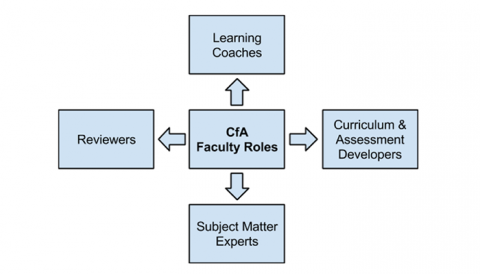
Questions flew thick and fast, and everyone appreciated the openness with which SNHU responded to them. Many of us left the campus with the recognition that SNHU’s reconfiguration is designed expressly to meet the needs of the College for America student, and that for institutions with other student profiles, other reconfigurations are possible.
Reconceiving the way in which well-trained professionals guide and support students’ learning pathways to the completion of degrees is a key intellectual and practical challenge to every institution determined to making a breakthrough in student success.

